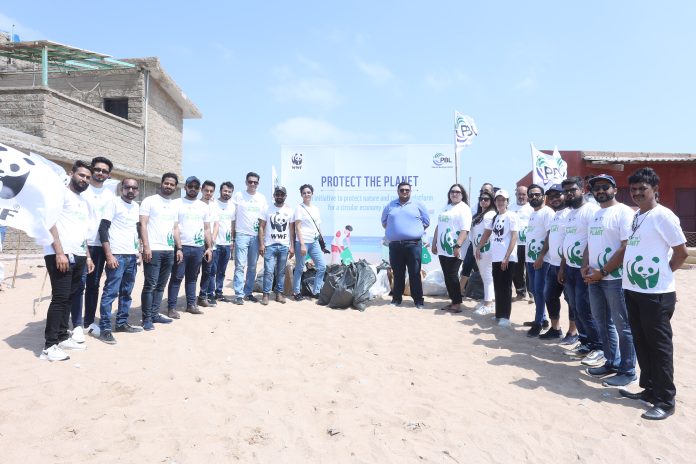Sustainability is about balancing the needs of the present with the needs of the future, ensuring that resources and opportunities are not depleted for posterity. Today, more than ever, sustainability goes beyond being just a buzzword, and one of the most crucial aspects of it is environmental protection. As we face unprecedented challenges like climate change, pollution, and resource depletion, it is crucial that we adopt practices that minimise our impact on the planet and preserve its natural beauty for generations to come.
We are all well aware of how climate change and pollution continue to be a pressing concern, especially in Pakistan, where plastic waste is a significant environmental challenge. We produce 3.9 million metric tonnes of plastic waste every year which will only grow, and is projected to reach a harrowing 6.12 million metric tonnes by 2050. With such numbers soaring to such levels, the future looks rather bleak, especially for our children.
To address this issue, Pakistan Beverage Limited (PBL) and the World Wide Fund (WWF) have collaborated on innovative initiatives to promote responsible waste management and encourage a more sustainable future. The Plastic Recovery Bank (PRB) initiative along with the Stars of the Planet Competition were recently launched at some of the most prestigious institutions in Karachi.
The Plastic Recovery Bank (PRB)
The recovery banks were installed across three institutions; University of Karachi (KU), Institute of Business Administration (IBA) and Sindh Madarsatul Islam University (SMIU). The aim is to foster a community-driven approach towards waste disposal. By encouraging responsible practices, the PRB seeks to reduce the amount of plastic waste ending up in landfills and other dumps.
Inspiring the Next Generation: The Stars of the Planet Challenge
The Stars of the Planet is a collaborative effort between PBL and WWF to encourage our future environmental leaders. PBL strongly believes in children being the future which has led to this initiative. The Star of the Planets program will inspire students from 20 different schools by engaging them in various awareness sessions, to guide young innovators in designing impactful projects focused on enhancing plastic collection and recycling, PBL and WWF-Pakistan will offer grant funding to the top three project ideas.This support will enable the implementation of these promising initiatives and measure their success!
Protecting Our Coastlines: Beach Clean-up Initiatives
Recognizing the devastating impact of plastic waste on marine life, PBL and WWF Pakistan organised a beach clean-up involving students from KU and SMIU. These initiatives raise awareness about the harmful effects of plastic pollution and promote responsible practices among the community.
Sustainability at PBL
These initiatives perfectly align with PBLs ethos of leaving no plastic to waste. PBL is the very first bottler in Pakistan to have converted all of its stock keeping units (SKU) to rPet bottles. rPet stands for recycled polyethylene terephthalate, which is also known as recycled plastic. What this means is that every bottle at PBL is made of recycled plastic, paving a plastic free future for our children. This is part of the Pep+ (PepsiCo Positive) framework.
With over 40 cubic metres of water being wasted on a daily basis, PBL recognised the need for water conservation and recycling. The effluent treatment plant (ETP) was installed during 2019-2020 to ensure water was not only being recycled, but also treated before being released into the sea. This ensures that marine life is not harmed by the toxins present in the water. PBL has saved more than 600 MM litres since 2020. A great milestone in the bottling industry.
Fuel emissions present a serious concern in our country and PBL is at the forefront taking renewable energy initiatives. They have launched 1.5 megawatt (MW) of solar energy and aim to increase it to 2 MW by the year end. This not only decreases cost but also protects the environment from harmful emissions. Additionally, PBL 2500 R290 coolers into its operations, significantly reducing electricity and refrigerant costs.
Conclusion
PBL’s commitment to sustainability is evident in its various initiatives, from rPet to beach clean-ups. By fostering a culture of environmental responsibility and empowering individuals to take action, these efforts contribute to a cleaner and greener Pakistan. As we strive for a sustainable future, it is imperative to involve all segments of society, especially the younger generation, in the collective effort to protect our planet.


